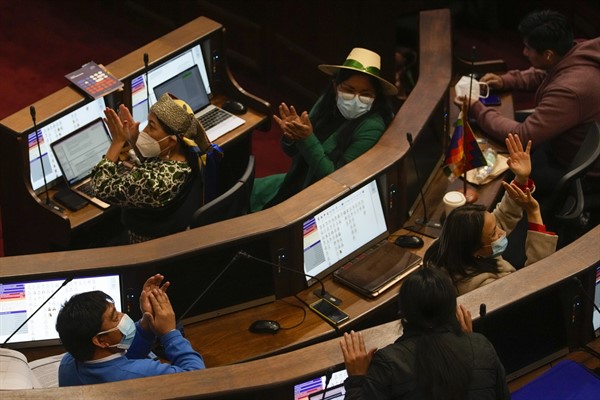After a messy and controversial drafting process that had to be extended by three months, the text of Chile’s new constitution is mostly finalized. The final document is overly long, and many of its key promises will require substantial legislative guidance to determine how they should be implemented. Many on the political right feel as if they have been left out of the process, in part due to their own failures when the Constitutional Assembly drafting the document was elected. Meanwhile, many on the far left feel that the proposed constitution makes too many compromises and doesn’t go far enough in terms of economic and social reforms.
In spite of all these perceived shortcomings, the new constitution is likely to be approved when voters decide its fate in a referendum this September. While polls show voters narrowly rejecting the new constitution, they are trending back toward approval.
Whatever they decide, Chile’s process for constitutional reform should be a model for similar efforts across the hemisphere, as it’s far better than many of the alternatives that have come before. If it is passed, however, its ultimate success will depend on whether advocates for the reforms the constitution promises remain engaged and organized in politics over the long run.

